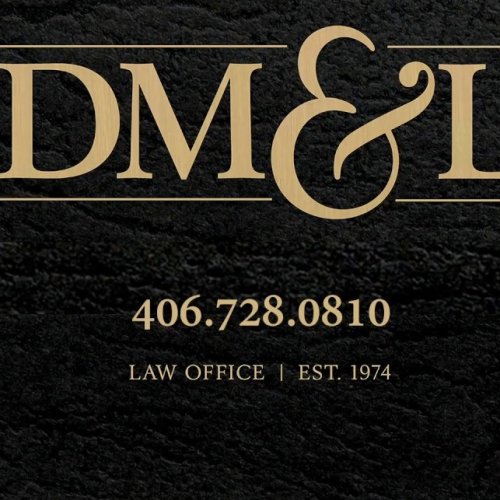Best Divorce & Separation Lawyers in Hamilton
Share your needs with us, get contacted by law firms.
Free. Takes 2 min.
Free Guide to Hiring a Family Lawyer
List of the best lawyers in Hamilton, United States
About Divorce & Separation Law in Hamilton, United States
Divorce and separation laws in Hamilton, in the United States, are primarily based on state laws. Hamilton is part of Butler County in the state of Ohio, which means divorce and separation cases are governed by Ohio's laws. Both parties must live in Ohio for at least six months before filing for divorce. The process includes the division of property, child custody arrangements, and determining whether alimony or child support is necessary.
Why You May Need a Lawyer
Engaging a lawyer for your divorce or separation case can be important for many reasons. Legal professionals help ensure that your interests are accurately represented in court. They provide guidance throughout the complex legal procedures, allowing you to better understand your rights and obligations. Divorce or separation can involve sensitive topics such as child custody, alimony, and property distribution, which require professional legal input. To mitigate the emotional toll and property disputes, you may need the expertise of a lawyer.
Local Laws Overview
In Hamilton, as in the rest of Ohio, divorce is typically granted on either fault-based or no-fault grounds. Fault-based grounds can include adultery, extreme cruelty, or habitual drunkenness while no-fault divorces can be due to incompatibility or living separately for a year or more. The division of marital property is made equitably, not necessarily equally, depending on various factors such as the duration of the marriage, the assets and liabilities of the spouses, and the desirability of awarding the family home to the spouse with custody of children.
Frequently Asked Questions
Is legal separation a prerequisite for divorce in Hamilton?
No, legal separation is not a prerequisite for divorce in Hamilton. Some couples choose legal separation as a step before divorce or an alternative to it.
How is property distributed in a divorce?
Marital property in Hamilton is generally divided in an equitable manner, which means a fair distribution but not necessarily a 50-50 split, depending on consideration of various factors.
How is child custody determined?
Child custody, in case of divorce or separation, is determined based on the best interests of the child. Several factors are considered, such as the child's wishes, the parents’ wishes, the child's adjustment to home, school, or community, and the mental and physical health of all parties involved.
Can alimony be modified after the divorce?
Yes, alimony or spousal support can be modified post-divorce in light of changes to financial circumstances of the involved parties. Such modification should follow legal procedures.
Can I represent myself in a divorce proceeding?
Yes, you can represent yourself in a divorce proceeding, which is known as "pro se" representation. However, it is generally advisable to be represented by a lawyer considering the complexity of the process and the matters involved.
Additional Resources
The Butler County Domestic Relations Court is a notable resource for individuals facing divorce or separation. Also, legal aid services and family services of Butler County could be helpful. Non-profit organizations that provide counseling and support during these challenging times can also be good resources.
Next Steps
If you need legal assistance in a divorce or separation case, start by consulting a family law attorney who specializes in divorce and separation. Make sure to prepare all relevant documentation, such as financial records or prenuptial agreements, for the attorney's review. Remember, the information mentioned above is not a substitute for legal advice. It's always best to seek consultation from a local attorney for personalized guidance.
Lawzana helps you find the best lawyers and law firms in Hamilton through a curated and pre-screened list of qualified legal professionals. Our platform offers rankings and detailed profiles of attorneys and law firms, allowing you to compare based on practice areas, including Divorce & Separation, experience, and client feedback.
Each profile includes a description of the firm's areas of practice, client reviews, team members and partners, year of establishment, spoken languages, office locations, contact information, social media presence, and any published articles or resources. Most firms on our platform speak English and are experienced in both local and international legal matters.
Get a quote from top-rated law firms in Hamilton, United States — quickly, securely, and without unnecessary hassle.
Disclaimer:
The information provided on this page is for general informational purposes only and does not constitute legal advice. While we strive to ensure the accuracy and relevance of the content, legal information may change over time, and interpretations of the law can vary. You should always consult with a qualified legal professional for advice specific to your situation.
We disclaim all liability for actions taken or not taken based on the content of this page. If you believe any information is incorrect or outdated, please contact us, and we will review and update it where appropriate.








